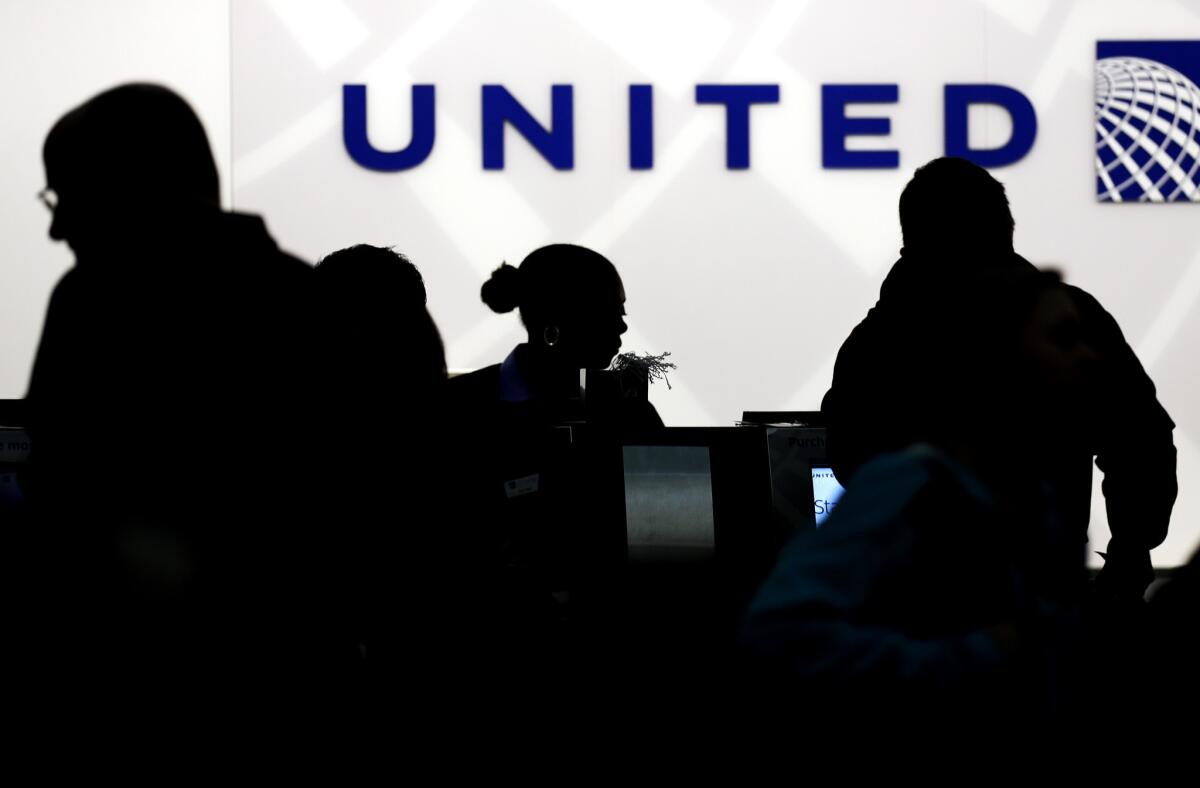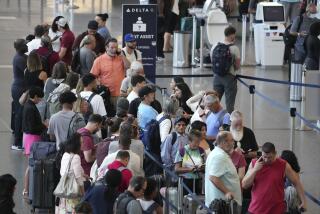United Airlines’ computers go on the fritz -- again

Computer systems for United Airlines shut down briefly Tuesday, delaying takeoffs and frustrating passengers.
The system problems that began Tuesday morning represented the latest malfunction for the nation’s third largest carrier since United switched over to the computer systems of its merger partner Continental Airlines, starting in 2012.
In a statement, the airline said: “This morning we experienced intermittent issues with our passenger service computer system, causing some flight delays. With the system now restored, we are working to get our customers to their destinations as soon as possible. We apologize for any inconvenience. “
On-time flight departures for United dropped to only 58% Tuesday morning, with the biggest effects at Los Angeles International, Chicago’s O’Hare International, Houston’s George Bush Intercontinental and Orlando International airport, according to the airline monitoring site Flightstats.com.
The problems began about 6:45 a.m. Pacific time when complaints from travelers began to show up on United’s Twitter page. The airline responded, saying the airline is “experiencing intermittent issues with our system.”
About 9:50 a.m., United posted on its Twitter page the system had been restored.
In September, an inputting mistake on United’s booking website was blamed for outrageously low fares offered to travelers, including a round-trip ticket from New York to Houston for $5.
In 2012, more computer problems led to delays of hundreds of flights in August and again in November.
ALSO:
What do record airline profits mean for you?
TSA responds to former screener’s allegations
Travel industry jobs surpass pre-recession level
More to Read
Inside the business of entertainment
The Wide Shot brings you news, analysis and insights on everything from streaming wars to production — and what it all means for the future.
You may occasionally receive promotional content from the Los Angeles Times.











